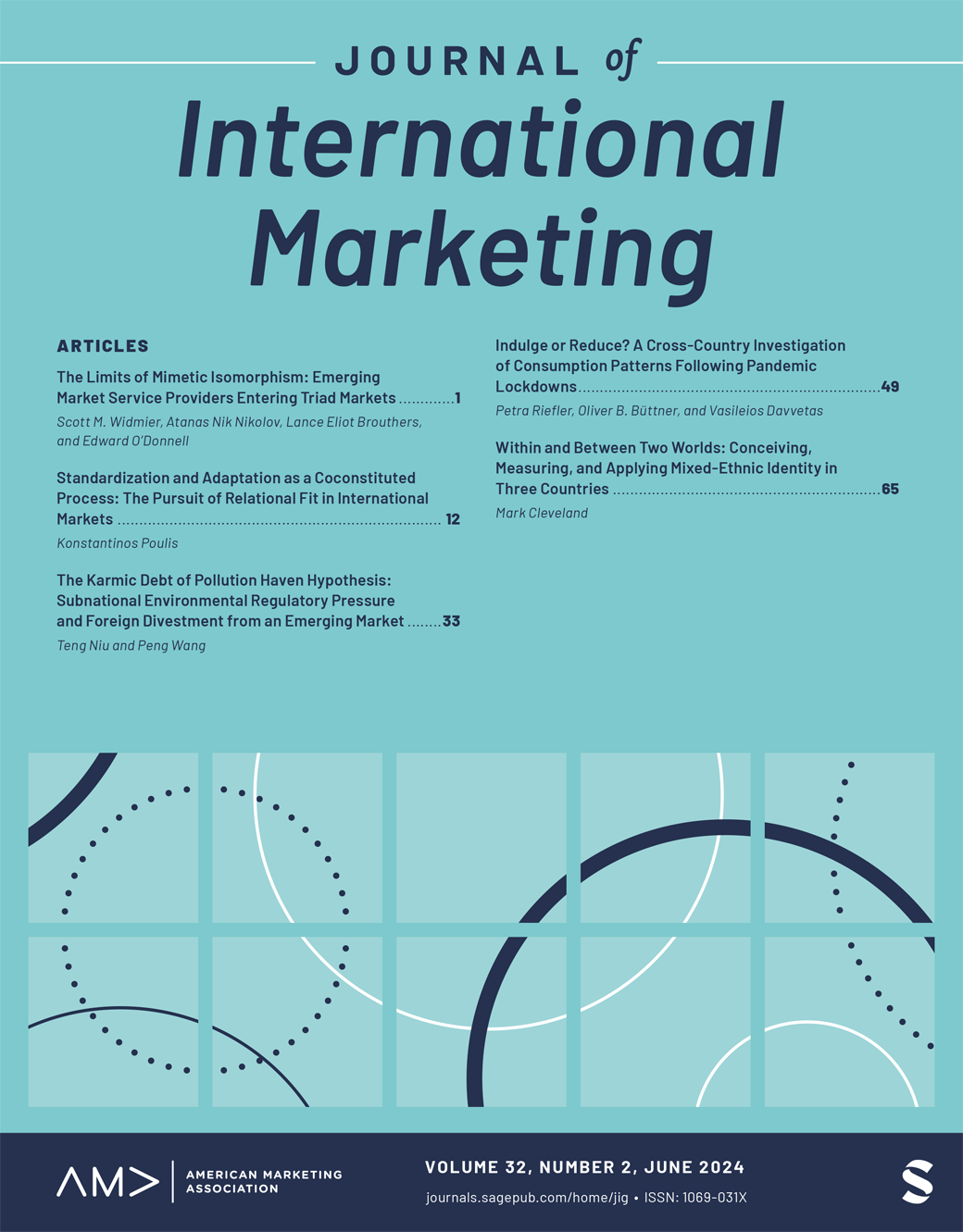人类情感大脑系统人工表征中的文化差异:一项深度学习研究
IF 4.2
2区 管理学
Q1 BUSINESS
引用次数: 5
摘要
国家之间的文化差异通常是通过比较多个维度的平均分数来计算的,这忽略了社会内部的异质性。这篇文章提出了一种通过评估情绪大脑的功能来衡量文化差异的全新方法,即通过比较人们的想法,而不是他们的想法。深度学习作为一种有监督的机器学习技术,用于用价值优先顺序、意见和其他因素与主观幸福感的非线性组合的复杂系统来数学表示大众(“民间精神”)的情感大脑。交叉验证一个大众主义者的人工大脑与另一个国家的匹配程度,为情感文化差异提供了一种新的衡量标准,同时也考虑了社会内部的异质性。这一测量在概念上和统计上与根据文化维度的平均得分计算的Kogut–Singh指数无关。然而,使用经典的引力模型,它显示出良好的表面有效性,并支持国际营销和商业理论,将其作为欧洲双边贸易流动的负面和高度重要的预测因素。本文章由计算机程序翻译,如有差异,请以英文原文为准。
Cultural Differences in an Artificial Representation of the Human Emotional Brain System: A Deep Learning Study
Cultural differences between countries are customarily calculated by comparing mean scores on multiple dimensions, which ignores heterogeneity within societies. This article proposes a fundamentally new way of measuring cultural differences by evaluating the functioning of the emotional brain—that is, by comparing how people think, rather than what they think. Deep learning as a supervised machine learning technique is used to mathematically represent the emotional brain of the Volksgeist (“folk spirit”) with a complex system of nonlinear combinations of value priorities, opinions, and other factors with subjective feelings of well-being. Cross-validating how well one Volksgeist's artificial brain fits another country provides a novel measure for emotional cultural differences, which also considers heterogeneity within a society. This measure is conceptually and statistically unrelated to the Kogut–Singh index calculated from mean scores on cultural dimensions. However, it shows good face validity and supports international marketing and business theory as a negative and highly significant predictor for bilateral trade flows within Europe, using a classic gravity model.
求助全文
通过发布文献求助,成功后即可免费获取论文全文。
去求助
来源期刊

Journal of International Marketing
BUSINESS-
CiteScore
8.70
自引率
17.20%
发文量
28
期刊介绍:
As the globalization of markets continues at a rapid pace, business practitioners and educators alike face the challenge of staying current with the developments. Marketing managers require a source of new information and insights on international business events. International marketing educators require a forum for disseminating their thoughts and research findings. Journal of International Marketing(JIM) is an international, peer-reviewed journal dedicated to advancing international marketing practice, research, and theory. Contributions addressing any aspect of international marketing management are published each quarter.
 求助内容:
求助内容: 应助结果提醒方式:
应助结果提醒方式:


